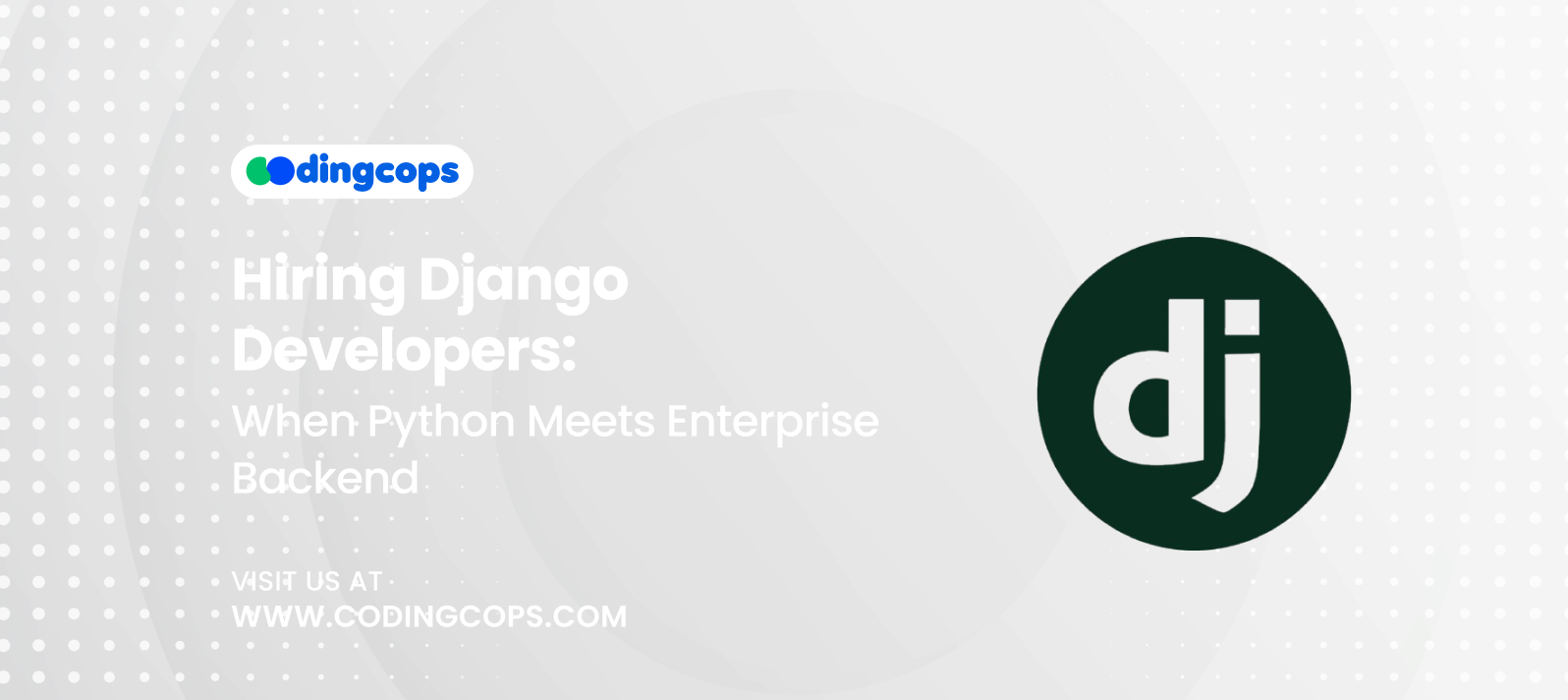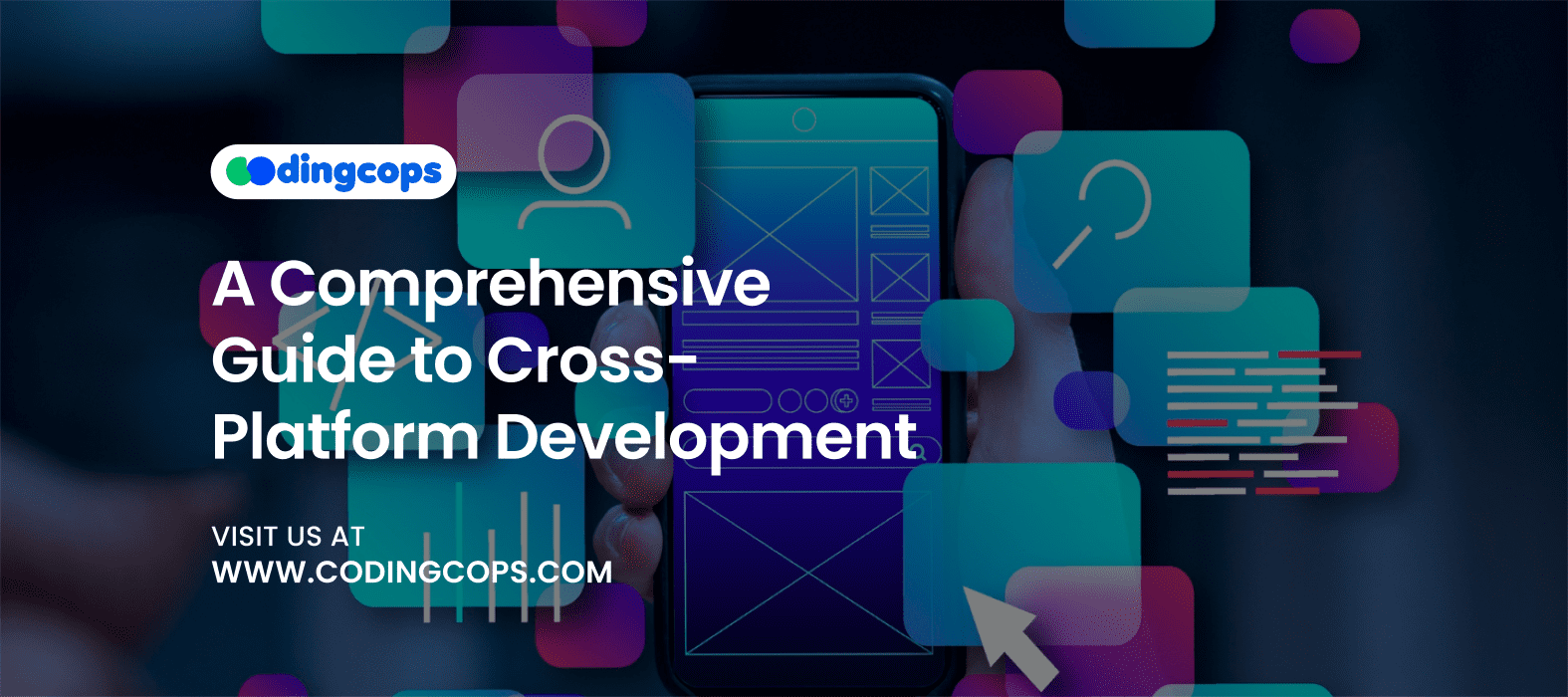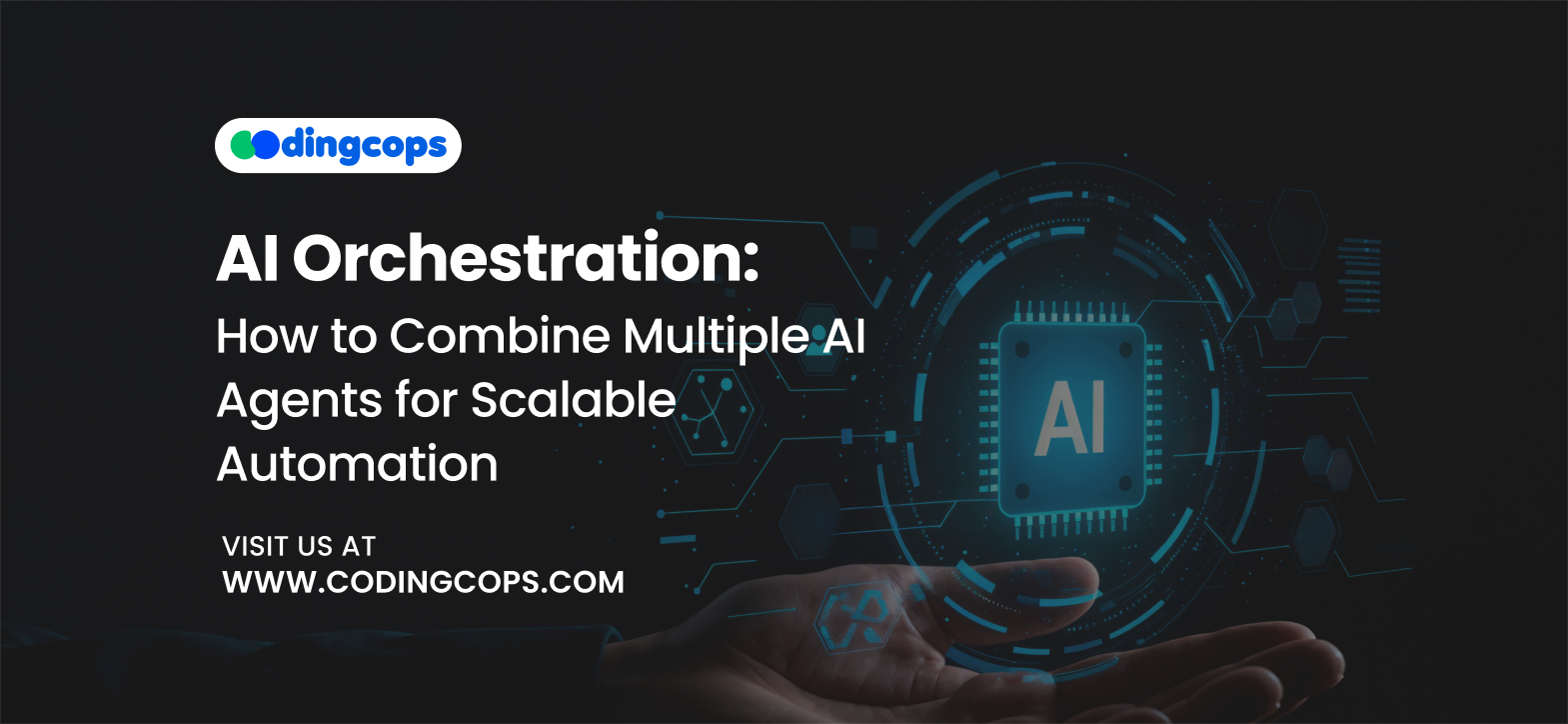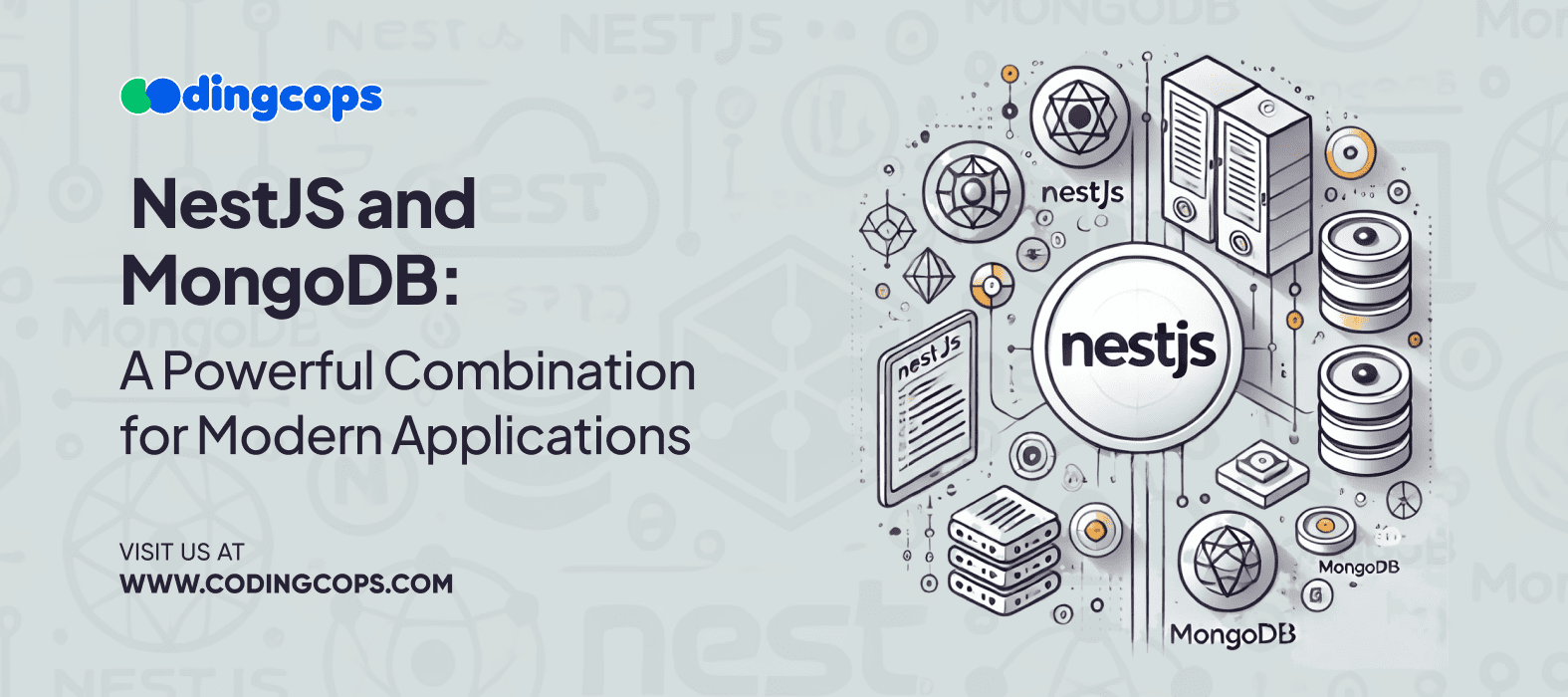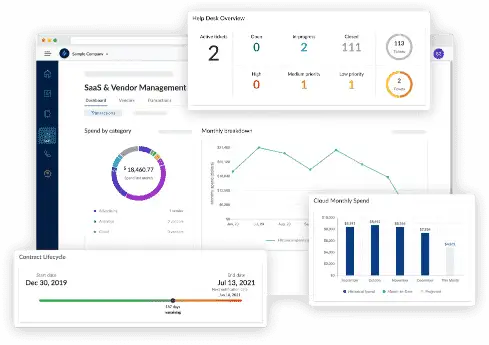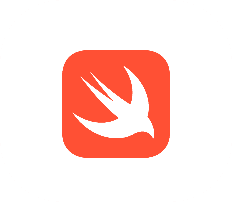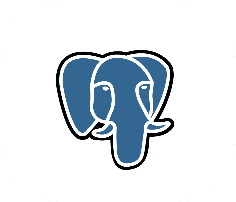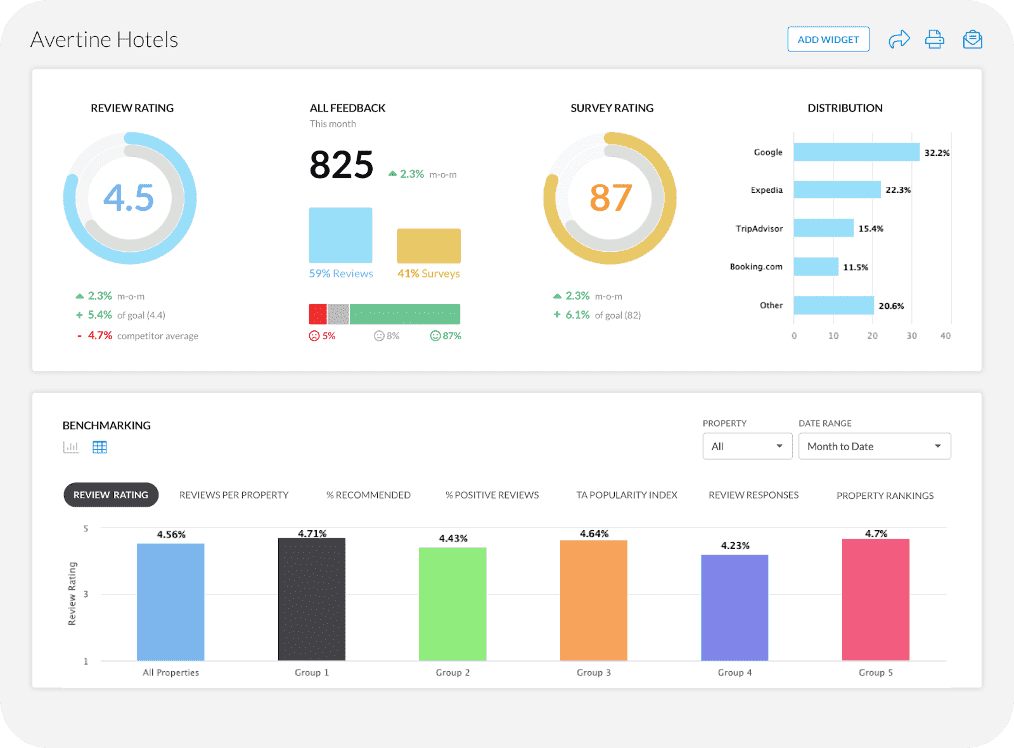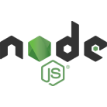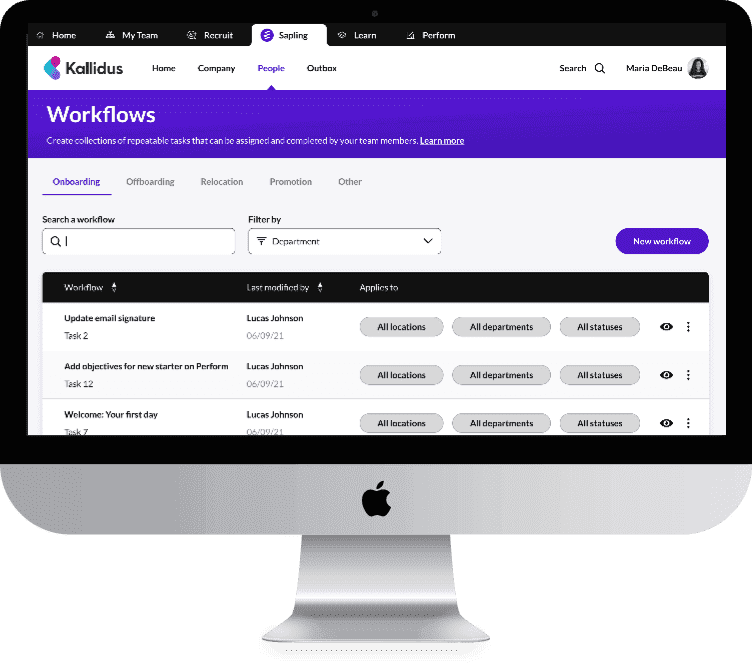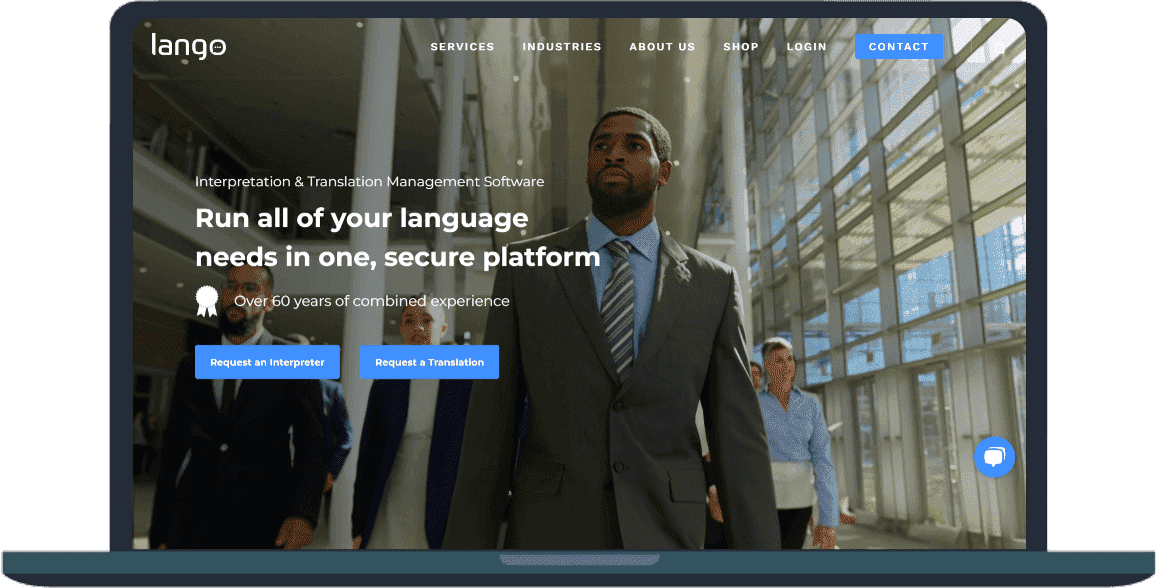According to the Web Technology Survey, there are over 64000 websites in the world that use Django for their backends. Hence, many top companies consistently hire Python developers. Moreover, Stack Overflow reports that 83% of developers use Django for its AI capabilities in enterprise applications.
This is because enterprises are always on the lookout for frameworks and technologies that offer security and quick development. Therefore, Django offers all of this and more as it’s a high level Python web framework, and it stands out for building enterprise grade applications.
In this blog, we will look at why Django is ideal for enterprise backend development. Moreover, we will look at skills you should look for in Django developers and how you can interview them.
Why Django is Perfect for Enterprise Backend Development?
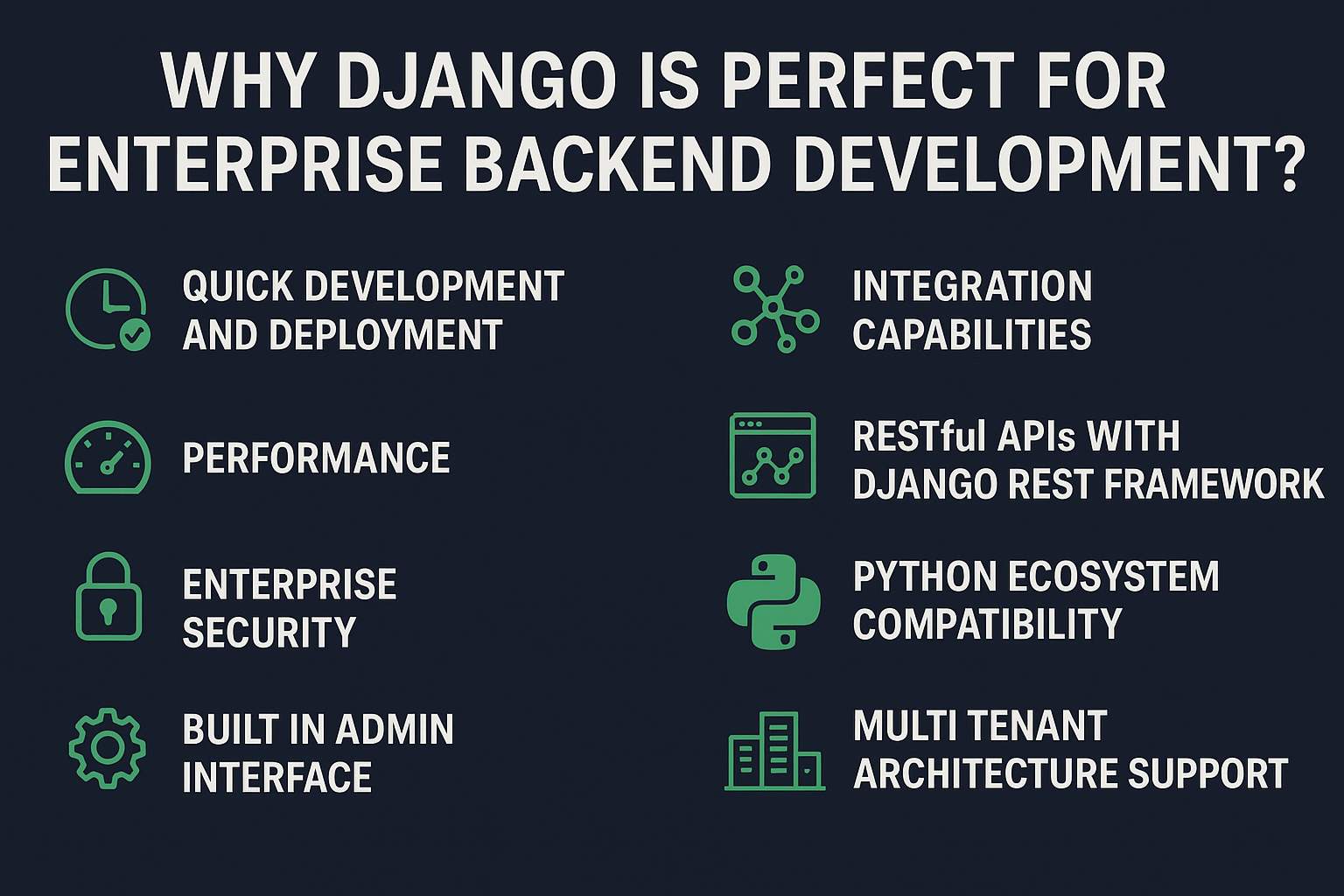
Quick Development and Deployment
One of Django’s most attractive features is its speed. Moreover, it adheres to the DRY principle and includes a diverse range of tools and libraries, such as form handling and user authentication. Hence, this can drastically reduce the time developers spend on boilerplate code. This allows developers to focus on building core business logic. Hence, for enterprises, this means faster time to market and reduced deployment costs.
Performance
Enterprise applications must be capable of handling increasing traffic and complex workflows. So, Django’s modular and loosely coupled architecture allows teams to scale parts of the application independently. You can use caching with Redis and asynchronous task queues with Celery to enhance performance under heavy loads. So, whether you are handling thousands of users, Django can scale horizontally and vertically to meet your performance requirements.
Enterprise Security
Security breaches may have a major negative impact on a company’s brand and legal standing. Because of this, security is a top priority when developing Django, which protects against regular assaults. Furthermore, Django also promotes best practices by default. For example, its ORM safely escapes SQL queries to prevent injection, and the framework includes a secure user authentication mechanism.
Built in Admin Interface
For internal enterprise operations, Django’s admin panel is an excellent feature. It allows project managers and business analysts to interact with application data securely without needing a developer to build a custom backend interface from scratch. Hence, this built in feature saves weeks of development time and enables enterprises to manage backend operations efficiently.
Integration Capabilities
Django is highly extensible and works well with other technologies. In enterprise environments where integrations with payment gateways and other apps are routine, Django provides mature third party packages and APIs that simplify the integration process. So, whether you’re connecting to Salesforce or Stripe, Django’s middleware and REST capabilities ensure smooth communication between systems.
RESTful APIs with Django REST Framework
Microservices and mobile apps are frequently needed by modern businesses. With the help of the excellent Django REST Framework extension, developers can create RESTful APIs with integrated authentication and filtering features quickly and effectively. Enterprise apps can therefore grow across platforms and devices using this framework and also provide consistency and maintainability without needless complexity.
Python Ecosystem Compatibility
Django integrates with Python’s extensive ecosystem of scientific and machine learning libraries since it is developed in Python. This is especially helpful for businesses looking to implement AI and data driven tactics. Additionally, Django can integrate with Python libraries and tools such as NumPy. Hence, these can turn Django systems into intelligent platforms capable of analytics and automation.
Multi Tenant Architecture Support
Enterprises often serve multiple business units or clients with a single software instance. Therefore, Django supports multi tenant architecture. This allows developers to isolate user data across clients while still maintaining a unified codebase. Hence, this structure improves efficiency and simplifies deployment pipelines for enterprise applications.
DevOps Compatibility
Django projects can be easily containerized. Additionally, they can be connected to DevOps pipelines and distributed using orchestration tools. As a result, businesses may easily use contemporary DevOps techniques. This ensures faster releases and version control across environments.
Responsibilities of Django Developers in Enterprise Projects
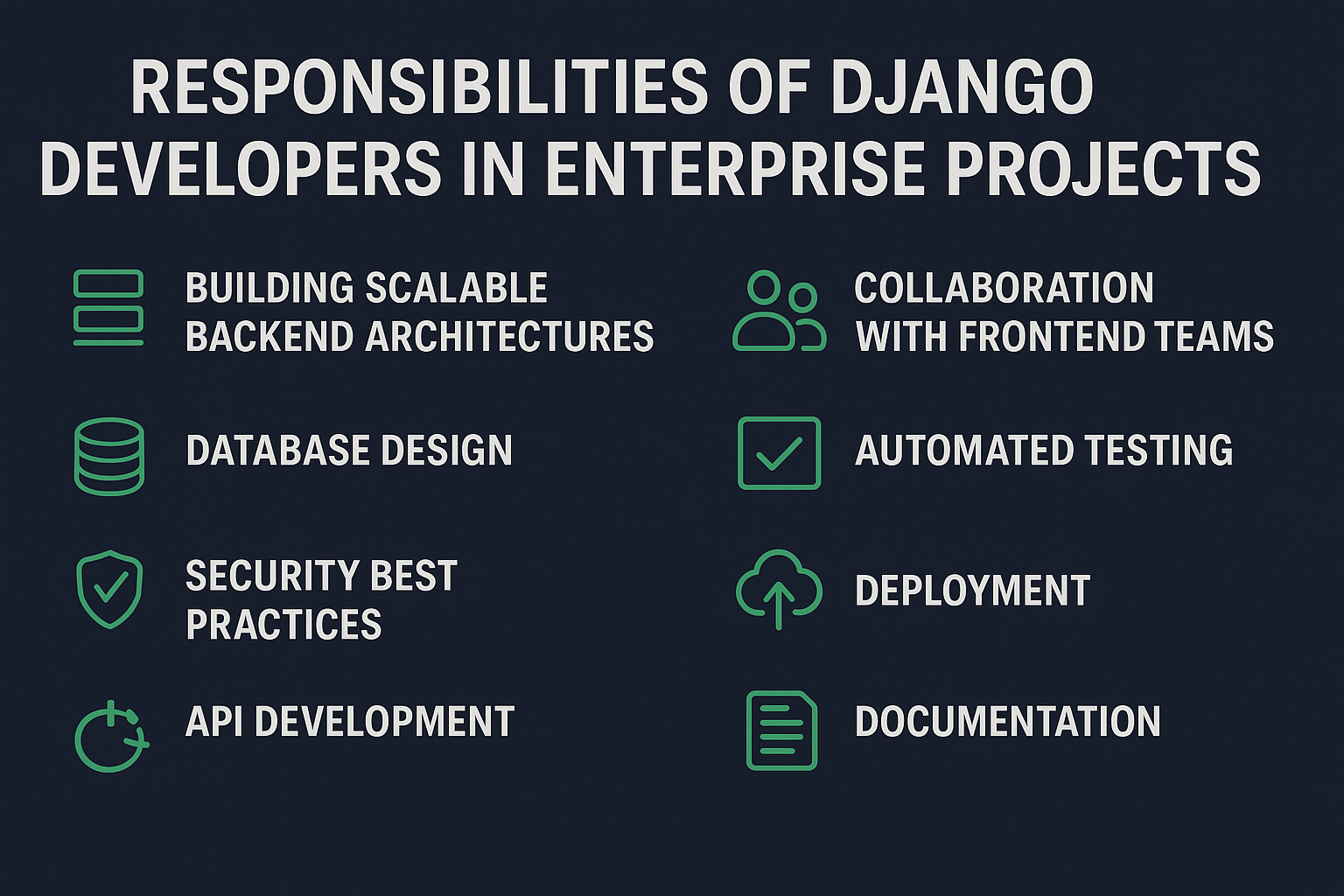
Building Scalable Backend Architectures
In enterprise projects, Django developers are responsible for designing backend systems that are both scalable and maintainable. Moreover, they structure applications using Django’s MVT architecture. This guarantees that the codebase is easily extensible and modular. Additionally, they make sure the system can handle an expanding user population and rising data loads without sacrificing efficiency by effectively managing Django programs.
Database Design
Database management is a cornerstone of enterprise applications. Moreover, Django developers have to design reliable and scalable database schemas using Django’s ORM. Also, they handle everything from database normalization to creating migrations that reflect changing business needs. In performance sensitive environments, they must also optimize queries and incorporate caching solutions to reduce latency and data retrieval times.
Security Best Practices
Django developers must build applications that adhere to stringent security standards. This includes implementing secure authentication and authorization systems. Also, they have to protect endpoints agains common vulnerabilities and ensure sensitive information is encrypted both in transit and at rest. Also, they have to stay aligned with data protection regulations.
API Development
Moreover, Django developers have to build RESTful APIs using Django REST Framework to enable seamless communication between services. Also, these APIs can serve frontend applications and mobile apps. Furthermore, developers are also responsible for designing clean and consistent API endpoints and implementing authentication mechanisms such as JWT. Additionally, they often integrate external APIs to ensure smooth interoperability across systems.
Collaboration with Frontend Teams
Developers of Django don’t operate in isolation. They also work together with project managers and frontend developers. Among their duties include taking part in Agile sprint planning and coordinating backend APIs with frontend specifications. Furthermore, delivering integrated and successful corporate solutions requires cross functional cooperation and excellent communication. Additionally, developers need to maintain openness throughout the development lifecycle and be proficient with project management systems like Jira.
Automated Testing
For Django development, maintaining code quality is a crucial duty. An essential component of Django development is automated testing. This is because it helps prevent regressions and ensures that new features don’t conflict with existing functionality. Developers can also create unit and integration tests for views and APIs using Django’s integrated testing framework.
Deployment
Deploying the application and making sure it functions properly in the production environment are common tasks for Django developers. Additionally, they are in charge of monitoring performance indicators and releasing updates with the least amount of downtime. In order to promptly detect and resolve problems, they also store error logs and offer high availability.
Documentation
Clear and consistent documentation is essential in large enterprise projects, especially when multiple teams are involved. Django developers are expected to document application architecture and deployment procedures. They also write onboarding guides for new developers and contribute to knowledge bases to support internal training.
Skills to Look for When Hiring Django Developers

Expertise in Python Programming
You should seek for developers that understand Python’s data structures and syntax and are skilled in the language. They should also be comfortable writing concise, efficient code and be familiar with Python’s built in modules.
Familiarity with Django Framework
It’s essential that developers has experience with Django’s features. These include URL routing and middleware. They should also be able to handle migrations with ease and develop reusable programs. Developers can develop scalable and maintainable apps for corporate use cases by being aware of Django’s advantages and disadvantages.
Experience with RESTful API Development
In order to interface with third party services, frontend and backend systems in modern corporate applications frequently rely on APIs for communication. Seek out developers that have worked with the Django REST Framework to create and consume RESTful APIs. Moreover, they should also know how to handle serialization and versioning.
Knowledge of Web Security Practices
Developers of Django should understand web security concepts and how to avoid risks. They should also be able to manage user roles and permissions and implement secure password storage. Moreover, they should follow secure coding practices.
Frontend Integration Capabilities
Developers typically collaborate closely with frontend teams on corporate projects. Additionally, they gain from being familiar with frontend frameworks like React and technologies like JavaScript. A great Django developer knows how to combine frontend elements with APIs.
Testing
Maintaining code quality through testing is essential in enterprise development. As a result, Django developers should be proficient in unit testing. Additionally, they should be at ease with Selenium for testing and Postman for API testing.
Version Control
Django developers should have experience with Git. Moreover, they should be able to manage branches and handle merge conflicts. Furthermore, they should follow Git workflow conventions.
Soft Skills
Furthermore, they should look for developers who can communicate effectively and provide clear status updates. Moreover, they should be comfortable participating in Agile stand ups and sprint planning meetings.
How to interview Django Developers?
Resume Review
Examine applicants’ résumés prior to conducting interviews. Developers with real-world corporate software development experience are what you should look for. Moreover, you should look for developers who are skilled in Django REST Framework and deployment on cloud platforms.
Initial Screening Call
The next step is to schedule a screening call. You can verify the résumé and gauge the candidate’s communication abilities during this conversation. You can ask them to explain their involvement in the development cycle and their prior Django projects. This can help you evaluate their ability to articulate technical concepts and explain decision making processes.
Technical Assessment
One of the best methods to evaluate the abilities of a Django developer is through a real coding assignment. As a result, you have to create a task that mimics actual situations. This can include creating a simple Django app. Hence, you should assess code clarity and reusability.
Technical Interview
Furthermore, you should conduct an in depth technical interview. You can ask them about Django’s architecture and how they use it for maintainability and scalability. Also, you can ask them about how they can use it for authentication or custom request handling. Moreover, you can ask them about how they can maintain security in a Django app. And, you can enquire about their approach to automated testing and which frameworks they prefer.
System Design
In enterprise backend roles, developers should understand system design is just as crucial as coding skills. You should include a system design interview where candidates can outline the backend architecture for a sample project.
Soft Skill Evaluation
Developers should be able to collaborate across teams and manage feedback. You can use behaviroal interview questions to evaluate soft skills. Moreover, you can ask them about how they handle conflict within development teams. Also, you can them about communication under pressure, and how well they can manage deadlines. Furthermore, you should evaluate their receptiveness to feedback and suggestions.
Cultural Fit and Alignment
Finally, you should assess the cultural fit of your candidates. You should introduce candidates to potential team members or even senior leadership to get a sense of alignment. Furthermore, you should discuss long term goals and company values. Also, you should discuss project expectations and work culture.
Final Words
Django is a secure and scalable development framework for enterprise development. Moreover, with its reliable features and RESTful APIs, it’s ideal for modern application development. Hence, hiring skilled Django developers ensures backend excellence and seamless integration. This can ensure long term growth across a complex enterprise ecosystem.

